Bonfire at Belfast interface 'cannot be allowed to proceed'
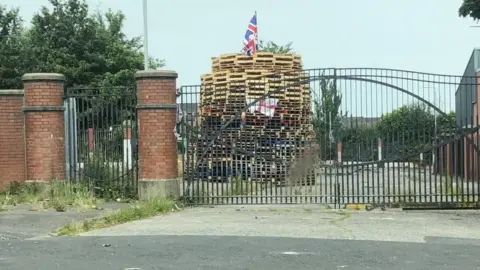 BBC
BBCThe burning of a loyalist bonfire at an interface in north Belfast cannot be allowed to proceed, Infrastructure Minister Nichola Mallon has said.
Last week, police said the Adam Street bonfire was one of a small number of bonfires causing concern.
Ms Mallon said the bonfire had been built on land owned by her department.
Officials were "working hard" to agree a local resolution and find an alternative site for the bonfire, she added.
Chief Constable Simon Byrne said if the bonfire was to be moved, police would be there to support contractors removing pallets, rather than doing the work themselves.
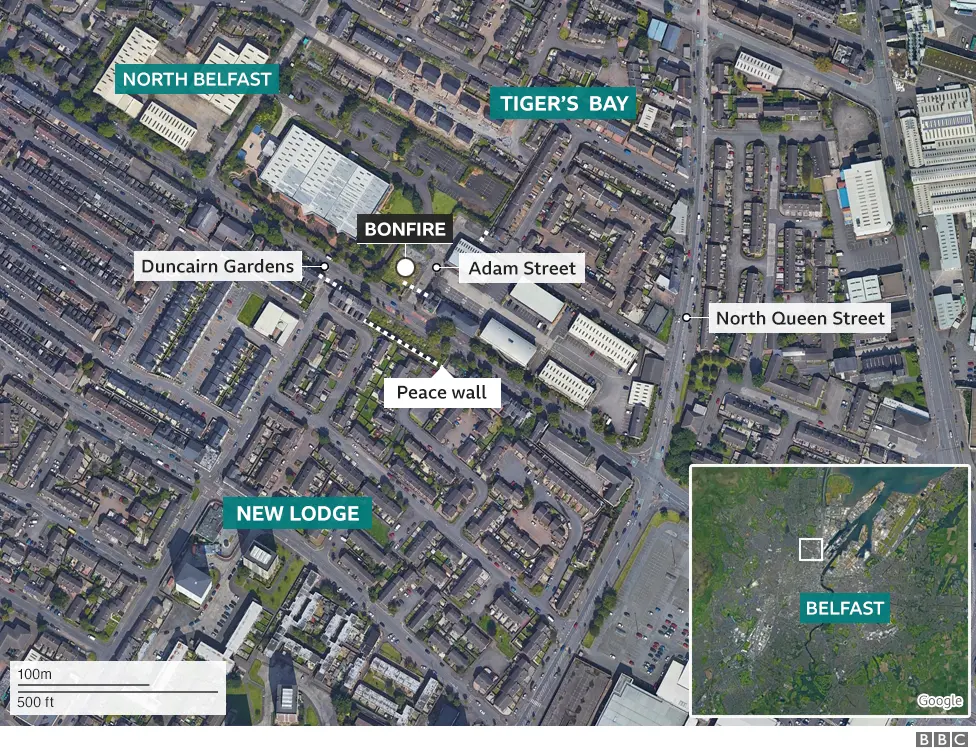
Ms Mallon said she did not rule out the possibility of legal action to ensure its removal, but stressed that she did not want to "get to that point".
Speaking on Wednesday, the minister said she was in close engagement with the Police Service of Northern Ireland (PSNI) to ensure all options were considered to deal with the situation.
"I want to find a local resolution but I am very clear there should be no bonfire anywhere on an interface site here in Northern Ireland," she said.
"We're having many bonfires across Northern Ireland, and across north Belfast it is very clear that there have been huge difficulties with this one.
"I have to be a responsible landowner and on an interface we can't allow these things to proceed."
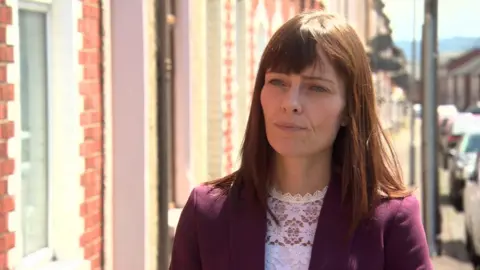

Why do people light bonfires?
Bonfires are lit in traditionally unionist areas on the Eleventh Night, to start the Twelfth celebrations.
They mark the Battle of the Boyne in 1690, when the Protestant King William of Orange defeated the last British Catholic monarch, King James II.
Bonfires were lit to welcome - and guide - King William III the night before.
What happens on the Twelfth?
Parades are held in many towns in Northern Ireland throughout the summer, but the biggest event in the calendar is 12 July.
The Orange Order says its colourful parades - which attract thousands of spectators and participants - are a way of expressing and promoting the Protestant culture and heritage.
- Read more: Who are the Orangemen?
Why are bonfires so contentious?
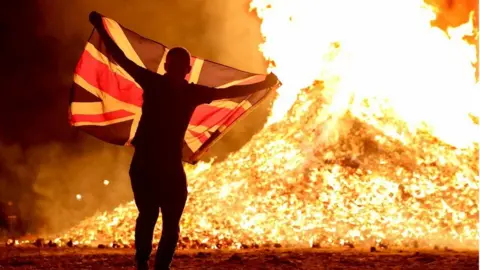 PACEMAKER
PACEMAKERSome people object to loyalist bonfires being used as a form of cultural expression, particularly when they involve the burning of flags, effigies and even election posters.
Last year, Northern Ireland's then-First Minister Arlene Foster criticised people who placed "sectarian and offensive messages" on top of Eleventh Night bonfires.
They can also raise tension if they are located close to nationalist areas.
There is also the issue of safety due to the bonfire's proximity to people and properties and the environmental impact.
Why are police concerned about some bonfires?
Earlier this month, the Police Service of Northern Ireland (PSNI) said that two or three loyalist bonfires out of about 250 are causing concern.
The Adam Street bonfire at the interface in north Belfast is probably the most contentious being examined by police, according to Chief Constable Simon Byrne.
The PSNI has already supported contractors to remove materials from a bonfire in east Belfast.
What is burnt at a bonfire?
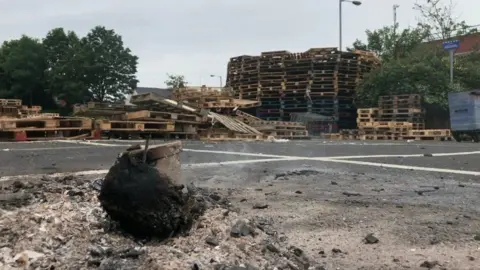
Bonfires are largely constructed from wooden pallets and household waste, but old tyres are often placed in the centre to make the fire burn more effectively, subsequently releasing toxic fumes.
